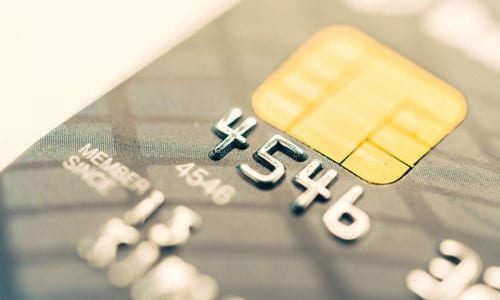
Managing Your Credit At College
Do you want a credit card? Okay. Get one, but know that having a credit card is a huge financial responsibility. The approach to managing it must be planned, intelligent and educated; after all, many students rack up hundreds – if not thousands – of dollars in debt while in college. Avoiding this financial pitfall is key! So how can you use your credit card wisely?
The first thing to consider is the reason you wanted a credit card. Did you apply for a credit card to establish and build credit? Did you apply so you could use it for emergencies or education expenses? Whatever the reason, be sure it is well-known and respected (by you) through the life of the credit card. One slip-up on those new sneakers or that great jacket could lead to more money mistakes and get you into trouble. Remember, when you use a credit card, you aren’t borrowing money from your parents; the cash is owed – possibly with interest – to a financial institution.
The next thing to think about is your monthly spending. Most likely you will want to keep your credit card bill below a certain amount so you are sure to be able to pay the amount in full each month. You also want to be aware of your limit and ensure you aren’t overspending, so you don’t get hit with over-the-limit fees. You should also keep your spending to around 50 percent of your credit limit or less (this means you should only spend up to 50 percent of your limit so your available credit will be the same or more than your balance).
Think about repayment options. It makes sense to pay the balance of your card in full each month. If you have to carry a revolving balance, think about paying the minimum twice a month to reduce the amount of interest the balance will carry. Also, keep in mind your interest rate and know that if you only pay the minimum each month, it could take quite a while to repay and your repayment amount could end up being much more than how much you actually spent.
Finally, keep track of your credit and check your credit report once a year. When you apply for a free credit report, you can keep tabs on your performance and ensure there aren’t any mistakes on your report. Mistakes can lead to future issues when applying for loans, buying a car or even getting a job.
These steps, if followed correctly, can lead to a healthy financial track record and keep you on point for spending wisely!
The first thing to consider is the reason you wanted a credit card. Did you apply for a credit card to establish and build credit? Did you apply so you could use it for emergencies or education expenses? Whatever the reason, be sure it is well-known and respected (by you) through the life of the credit card. One slip-up on those new sneakers or that great jacket could lead to more money mistakes and get you into trouble. Remember, when you use a credit card, you aren’t borrowing money from your parents; the cash is owed – possibly with interest – to a financial institution.
The next thing to think about is your monthly spending. Most likely you will want to keep your credit card bill below a certain amount so you are sure to be able to pay the amount in full each month. You also want to be aware of your limit and ensure you aren’t overspending, so you don’t get hit with over-the-limit fees. You should also keep your spending to around 50 percent of your credit limit or less (this means you should only spend up to 50 percent of your limit so your available credit will be the same or more than your balance).
Think about repayment options. It makes sense to pay the balance of your card in full each month. If you have to carry a revolving balance, think about paying the minimum twice a month to reduce the amount of interest the balance will carry. Also, keep in mind your interest rate and know that if you only pay the minimum each month, it could take quite a while to repay and your repayment amount could end up being much more than how much you actually spent.
Finally, keep track of your credit and check your credit report once a year. When you apply for a free credit report, you can keep tabs on your performance and ensure there aren’t any mistakes on your report. Mistakes can lead to future issues when applying for loans, buying a car or even getting a job.
These steps, if followed correctly, can lead to a healthy financial track record and keep you on point for spending wisely!







